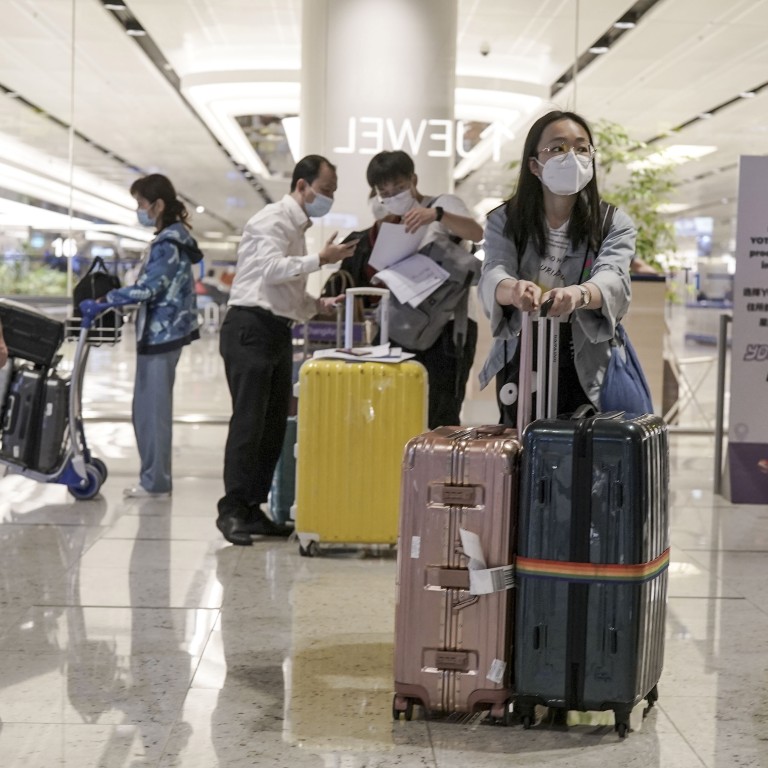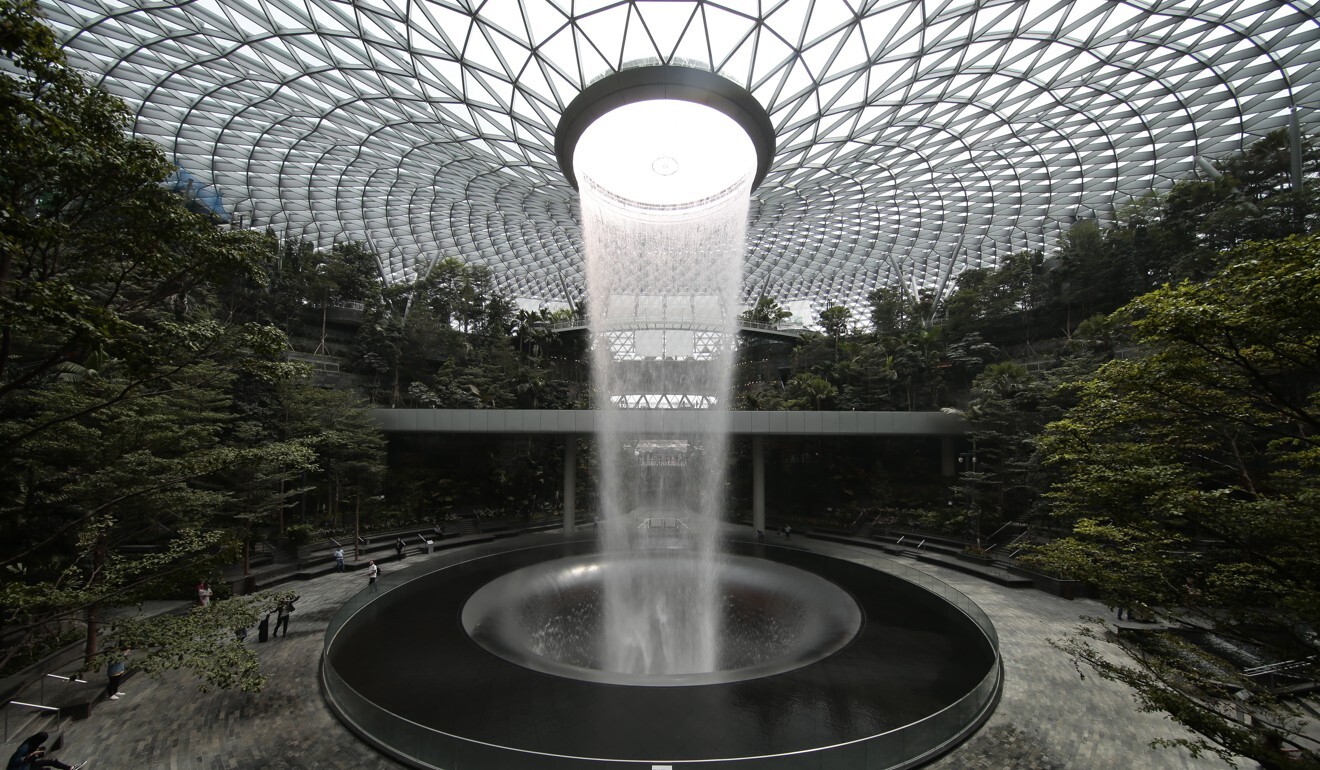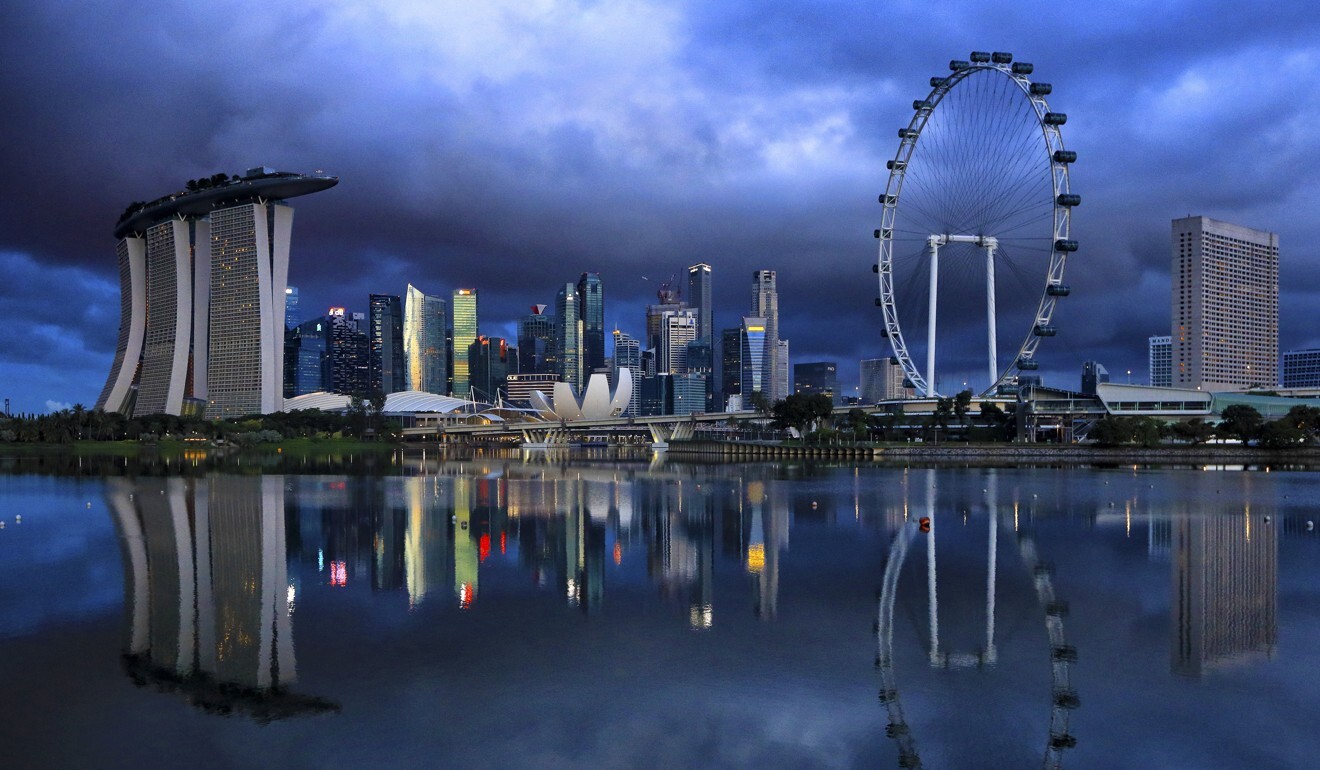
Singapore reports 24 Covid-19 cases, but Hong Kong says travel bubble still on
- City state confirms largest daily jump in infections since July as Changi Airport cluster balloons to 46
- Reasons for optimism, says Alex Cook, the vice-dean for research at the Saw Swee Hock School of Public Health
Under the arrangement, the travel corridor, which is set to begin in less than two weeks on May 26, will be suspended if the seven-day moving average of unlinked cases in either city exceeds five.
Singapore now has 12 active clusters. The country has already clocked 112 domestic infections this month, compared to 55 cases in April and just nine in March.
Singapore may have to ‘learn to live’ with Covid-19, minister says
Alex Cook, the vice-dean for research at the Saw Swee Hock School of Public Health, who specialises in infectious diseases modelling, said while this was the most community cases since July, there were reasons for optimism. Cook explained that many of the cases being uncovered were linked to clusters and were found as part of contact-tracing efforts.
“This limits the number of secondary infections they can cause. The daily counts are similar to the numbers we saw while we were still under lockdown, a year ago, in spite of the much greater freedom we currently have,” said Cook. “Finally, these cases are against a backdrop of ever increasing vaccine coverage.”
As of May 10, Singapore had fully vaccinated 22.5 per cent of its 5.7 million population and another 10 per cent had received one dose.

01:40
Travel bubble: Hong Kong and Singapore to launch quarantine-free entry after long delay
In a sign of growing concern over the airport cluster, the health ministry on Wednesday said it would close all passenger terminal buildings including the Jewel Changi Airport – a popular 10-storey complex with the world’s tallest indoor waterfall, shops and dining places – to visitors for two weeks. The health ministry is also offering free testing for individuals who have visited the airport’s Terminal 3 since May 3. Most of the people in the cluster had either worked at or visited the terminal. A mass testing exercise for some 9,000 workers at Changi Airport began on Monday.
Cook said the airport closure made sense as it helped avoid unnecessary exposure. He said it did not mean the government thought there were hidden cases, “though there may well be”. Instead it meant to “prevent infections that are yet to occur”.
As of May 12, the Changi Airport cluster consisted of 16 people who were already vaccinated while the hospital cluster had nine who were vaccinated.

VACCINATION REDUCES SEVERITY
Still, authorities and experts stressed that vaccination reduces the severity of the disease. In parliament on Tuesday, Minister of Health Gan Kim Yong used the hospital cluster as an example, saying that the nine people who were vaccinated had less severe symptoms and did not need oxygen treatments. Of those not vaccinated, six needed oxygen, two were in intensive care and an 88-year-old died.
“The findings do indicate that vaccination provides critical protection even against Covid-19 variants,” Gan said.
Singapore’s Jewel Changi Airport to be closed after coronavirus outbreak
In recent days, there has also been a handful of cases in which people displayed symptoms but did not see a doctor immediately, including a man who developed a cough on April 21 but only sought treatment three weeks later after his cough worsened. Health care experts say such behaviour could slow the contact-tracing process and result in clusters.
Singapore has seen a sharp rise in domestic cases in recent weeks after months of near zero infections, although numbers are still a fraction of those in its Southeast Asian neighbours.
But the rise is a setback for the country ahead of the travel bubble and in-person conferences scheduled for the coming months, such as the Shangri-La Dialogue security summit in early June and the World Economic Forum’s annual summit in August.

Meanwhile, Singapore also tightened border measures for those entering from Vietnam, citing an increase in infections there. The health ministry said travellers who have recently been to the Southeast Asian nation would have to serve their three-week quarantine period at dedicated facilities. Previously, they were required to spend 14 days at a facility followed by a week at their place of residence.
The city state had in recent days tightened border controls, extending its quarantine period for most inbound visitors – except for those in seven lower-risk jurisdictions (Australia, New Zealand, Brunei, mainland China, Taiwan, Hong Kong and Macau) – from 14 days to 21 days.
Singapore has reported more than 61,000 infections, with the bulk linked to outbreaks in foreign worker dormitories, and 31 deaths.
Despite the sharp uptick in cases, Hong Kong’s Secretary for Commerce and Economic Development Edward Yau Tang-wah remained optimistic that the travel bubble would launch on May 26 as scheduled.
“The numbers are well below the established threshold to trigger a pause in the bubble. We will closely monitor if the situation gets worse,” Yau said on Wednesday following a Legislative Council session.


